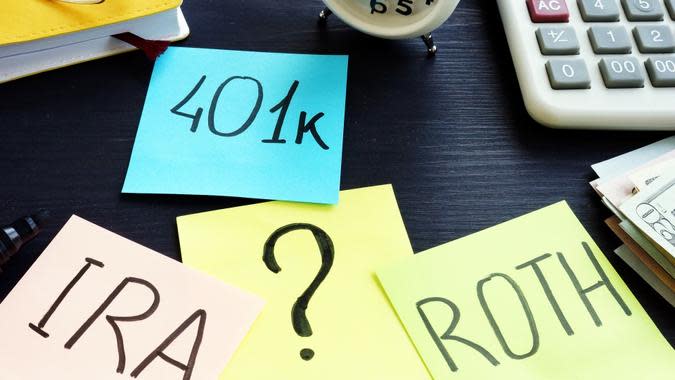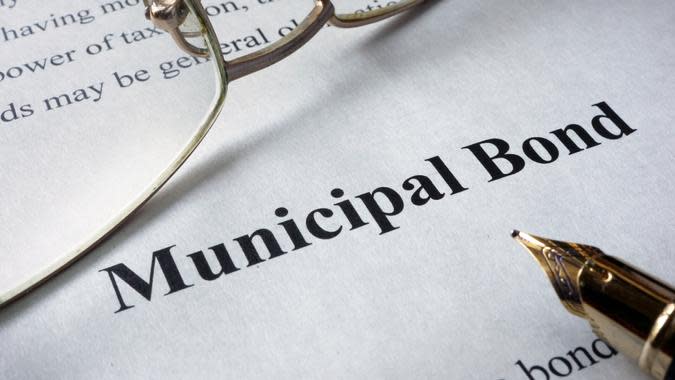6 Types of Retirement Income That Aren’t Taxable

One often-overlooked aspect of retirement planning is the effect of taxes. Without proper planning, taxes can take a significant bite out of your nest egg.
Read: 8 Undiscovered, Cheap and Beautiful Cities To Retire In
Learn More: 7 Surprisingly Easy Ways To Reach Retirement Goals
A $1 million dollar portfolio in a 401(k) plan or traditional IRA, for example, might be worth $800,000 or less after taxes. Similarly, if your investments are in a regular, taxable brokerage account, the income that money generates may also be taxable.
One way to work around this problem is to save and invest even more during your working career so that you have extra money to pay your taxes. Another is to be tax-smart with your investments and account choices to reduce your tax liability to an absolute minimum. Here are several types of retirement income that are not taxable.

Roth Withdrawals
The easiest way to avoid taxes on your retirement money is to use a Roth account. Both IRA and 401(k) plans can be structured as Roth accounts, which don't offer a tax deduction on contributions but allow tax-free withdrawals after age 59 ½.
Essentially, with a Roth account, you're paying your taxes upfront at the time that you contribute, rather than owing them on your distributions. While you can't contribute to a Roth if your income exceeds certain levels -- $144,000 for singles or $214,000 for joint filers -- you can convert your traditional plan to a Roth at any time. However, you'll have to pay income taxes on the amount of the conversion, just as if you withdrew the money.
For this reason, it typically makes more sense to start a Roth earlier in your career rather than facing a huge tax bill during your peak earning years.
Live Richer Podcast: Unexpected Ways Losing a Spouse Can Affect Your Finances and Retirement

Inheritances
It's not usually a good idea to rely on an inheritance as a retirement plan. For starters, receiving an inheritance is never a sure thing, and additionally, the amount bequeathed is rarely enough to fund a long retirement.
However, many Americans do receive an inheritance at some point in their lives, and it can often be a good supplement to existing retirement savings. Financially speaking, the best part of an inheritance is that it is tax-free. Even if there is estate tax involved, which is quite a rarity, beneficiaries are not responsible for paying them.

Municipal Bond Income
Municipal bonds are issued by states, cities and various localities, generally to fund projects like schools, roads and other items that are for the common good. Municipal bonds are granted tax relief at the federal level, meaning investors don't have to pay federal taxes on the interest earned from any municipal bond.
If you buy a bond issued in your own state, you're typically granted a tax exemption from state taxes as well. This makes municipal bonds particularly valuable in high-tax states like California. They can also be a good source of retirement income, as they are generally safe investments in addition to being tax-exempt.

HSA Withdrawals
A health savings account (HSA) combines some of the best features of both traditional and Roth IRAs into a single package. Contributions to an HSA earn a tax deduction, and earnings within the account grow tax-free.
When used for qualifying healthcare expenses, which is a fairly broad category, withdrawals are tax-exempt as well. Otherwise, you'll face a steep 20% penalty on your withdrawals. However, the kicker in terms of retirement planning is that once you reach age 65, you can withdraw your HSA money for any reason at all without having to pay a penalty.
When used for non-healthcare purposes, you'll still face ordinary income tax, but you can avoid the penalty. The best use of an HSA will always be for healthcare expenses, though, as you can withdraw your funds tax-free at any time.

Social Security Payments*
In many cases, Social Security payments are not taxable, but this is not always the case. If you're simply living off your Social Security retirement benefits, then it's true that they are tax-free. However, if you earn over a certain amount, some or even most of your payments become taxable. Here's how the taxation of Social Security for 2022 breaks down, based on income and filing status:
Individuals with a combined income of $25,000 to $34,000 may have to pay tax on up to 50% of their benefits; those with incomes of over $34,000 may face taxes on up to 85% of their Social Security income.
For joint filers, up to 50% of Social Security income is taxable for incomes between $32,000 and $44,000, with those earning more paying tax on up to 85% of benefits.
The Social Security Administration defines "combined income" as adjusted gross income plus nontaxable interest plus one-half of Social Security benefits.

Life Insurance Proceeds
Just like an inheritance, waiting for a life insurance payout isn't an ideal strategy for funding a retirement plan. However, it's entirely possible that at some point in your senior years you will receive some type of life insurance payout.
Often, these distributions are in the hundreds-of-thousands-of-dollars range, so they can significantly impact your retirement savings. And just as with inheritances, life insurance proceeds are tax-free to the recipient, at least when taken in a lump sum rather than installments.
More From GOBankingRates
This article originally appeared on GOBankingRates.com: 6 Types of Retirement Income That Aren’t Taxable
